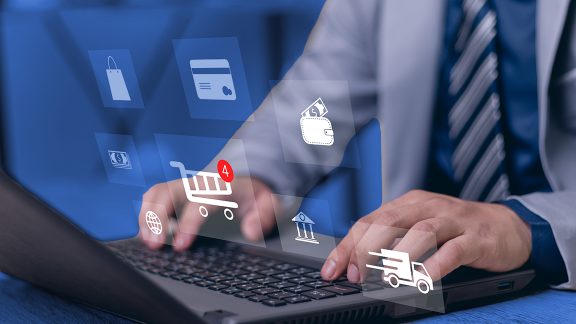There are many things you need to prepare when buying a house. One of the most time-consuming aspects is preparing for the associated costs. This also applies if you're planning to buy a house through a mortgage program.
Besides various mortgage application requirements, you also need to prepare various costs, from down payments, provision fees, life insurance costs, mortgage deed costs, and others. Mortgage deed costs themselves are common expenses in the home ownership process in Indonesia.
This article will discuss mortgage deed costs in detail. Read on to learn more.
Key Takeaways:
- A credit deed is a series of ownership credit processes between the bank and debtor.
- There are 11 mortgage costs you need to prepare in the home ownership credit deed process, including booking fees, appraisal fees, down payment, notary fees, BPHTB fees, APHT fees, administrative fees, provision fees, property insurance, life insurance, and first installment payment.
- In the credit deed process, you will go through 3 stages: pre-deed, execution, and post-deed processes.
Understanding Mortgage Deed Costs
According to the Indonesian Dictionary (KBBI), a deed is a promise, agreement, and contract. A credit deed is a legally binding contract that documents credit agreement terms. A credit agreement must be made before the borrower can use funds provided by the lender.
A home ownership credit deed is a meeting between the bank and debtor when there is approval for home ownership credit. The credit deed is a series of ownership credit processes between the bank and debtor.
Typically, mortgage deed costs charged are 7-10 percent of the ceiling. This money is directly transferred to the debtor's account at the relevant bank. Agreement documents can only begin to be prepared after the debtor pays all mortgage deed costs.
Mortgage Costs That Need to Be Prepared for Buying a House
In the home ownership credit deed process, there are several costs you need to prepare. Here are 11 mortgage costs you need to prepare for buying a house through a mortgage program:
1. Booking Fee
The earliest KPR fee that buyers must pay when purchasing a house or property is the booking fee. The booking fee serves as the buyer's commitment to reserving the desired house or property. The booking fee can help reduce the price of the house to be purchased. However, if you decide not to buy the house, this booking fee may or may not be refunded, depending on each developer's policy. The booking fee amount varies, ranging from IDR 500,000 to IDR 25,000,000. The booking fee details are usually higher for luxury home purchases.
2. Appraisal Fee
Appraisal fee is another mandatory fee you must pay in the KPR application process. There are two types of appraisal fees: the bank's internal appraisal fee, which is charged directly when applying for a KPR, and the KJPP (Public Appraisal Service Office) appraisal fee, which can provide more objective assessment results.
3. Down Payment Fee
As the name suggests, a down payment is a fee paid at the beginning of a house purchase transaction. The purpose of the down payment is to show a greater commitment to completing the house purchase. Generally, the down payment takes up the largest portion of other KPR fees. The amount of down payment you need to prepare for buying a house can reach around 10% to 30% of the house price.
4. Notary Fee
As you may know, the process of buying and selling a house involves many documents, from the Sale and Purchase Deed, KPR agreement, APHT binding, and others. Therefore, you need a notary's presence in the KPR application process, which will add another cost to the KPR fees, namely the notary fee. Notary fees are fees you need to use notary services. Therefore, notary fees generally vary and depend on the house transaction value or KPR ceiling provided by the bank, as well as the location of the house to be purchased.
5. BPHTB Fee
By buying a house, you will obtain rights to land or buildings. Therefore, there is a tax fee that you must pay, namely the BPHTB (Fee for Acquisition of Rights to Land and Buildings) fee.
6. APHT (Deed of Encumbrance) Fee
The next KPR fee you need to prepare is the APHT or Deed of Encumbrance fee. APHT fees are issued to manage the deed of encumbrance. By paying the APHT fee, you can use the property you purchase as collateral for the KPR loan to the bank.
7. Administration Fee
In the KPR application process, every bank charges an administration fee. Usually, banks will charge an administration fee once upfront, or monthly, or even for the lifetime of the credit.
8. Provision Fee
Another KPR fee that you must prepare when applying for a KPR is the provision fee. The provision fee is a service fee for the bank's approval of the submitted KPR. The provision fee is generally 1% of the approved loan value. You can be critical to the bank if you feel the provision fee charged is not as expected.
9. Property Insurance Fee
When you purchase a house, the bank will use the house you buy as collateral. Therefore, banks generally require you to cover property insurance to avoid the risk of house damage that might occur due to disasters, fires, or other causes.
10. Life Insurance Fee
Life insurance fee is one of the KPR fees that you need to prepare when buying a house using the KPR program. With life insurance protection, if something unexpected happens, for example, if the debtor passes away, life insurance will automatically become the fee used to pay off the remaining principal loan. However, if you don't have life insurance, then the bank debt will be borne by the debtor's heirs.
11. First Installment Fee
The first installment fee is the last KPR fee that you must prepare. This KPR fee is your first KPR installment payment. Usually, the first installment fee will only be due within 1 month after you execute the credit agreement.
Three Stages of the Mortgage Deed Process
The credit deed process involves several parties:
- Buyer (with spouse if married, or guardian if single)
- Bank representative
- Developer or seller
- Notary to legitimize house purchase transaction
The process has three stages:
1. Before Credit Deed
Steps include:
- Bank sends credit approval letter
- Credit deed timing determination
- Obligation to pay mortgage costs
- Document preparation
Required documents:
- For buyers:
- ID cards of husband and wife (if married)
- Family card
- Marriage certificate
- Tax ID number
- For sellers:
- Land certificate
- Building permit
- Property tax payment proof
- Other supporting documents
2. Credit Deed Execution
- Signing agreement with bank
- Agreement includes credit ceiling, tenor, monthly installments, rights and obligations
- Separate agreement with house seller covering price, land and building size, location, permits, etc.
3. After Credit Deed
- Buyer becomes legal owner
- Can occupy house if ready
- Must pay regular mortgage installments
- Bank issues Debt Settlement Letter and Original House Ownership Certificate after full payment
- Seller receives payment within 7 working days
Apply for Mortgage Easily with BTN Subsidized Mortgage
Now that you understand mortgage deed costs, you can start preparing the necessary expenses for mortgage application.
Want to apply for a mortgage to buy your dream home? BTN offers solutions for quick and easy home purchases. As a renowned Indonesian bank established in 1950, BTN provides various programs including the BTN Subsidized Mortgage.
BTN Subsidized Mortgage is a home ownership program from the Ministry of Public Works and Housing for Low-Income Communities (MBR). It comes in three products:
- BTN Sejahtera Mortgage
- BTN BP2BT Mortgage
- BTN Tapera Mortgage
Benefits include:
- Low down payment from 1%
- Fixed 5% interest rate
- Up to 20-year term
- IDR 4 million down payment assistance (for landed houses)
- And more
Interested in applying for a BTN mortgage? Visit our website to learn more about terms and conditions or explore other attractive BTN products.






